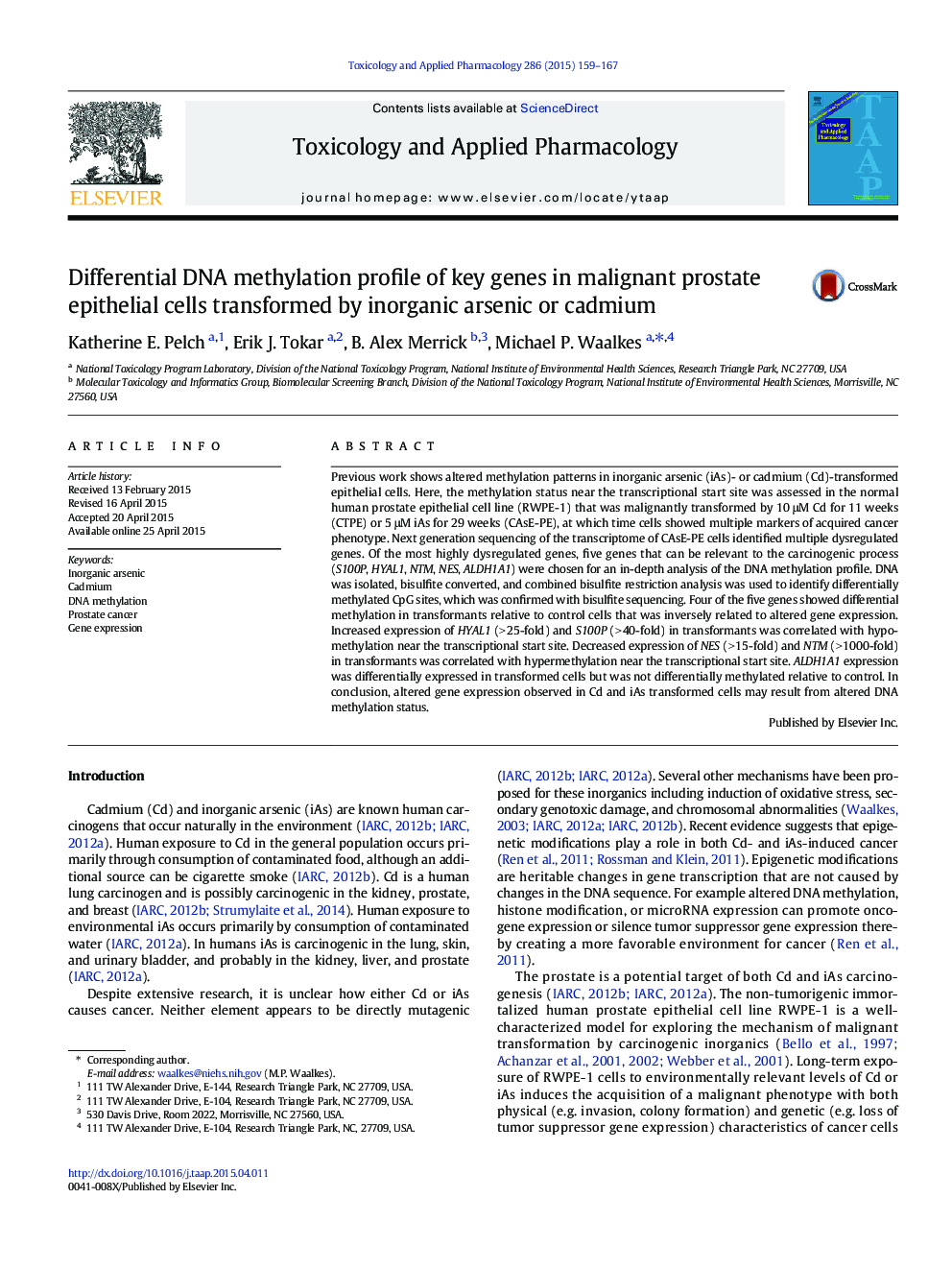| Article ID | Journal | Published Year | Pages | File Type |
|---|---|---|---|---|
| 5846013 | Toxicology and Applied Pharmacology | 2015 | 9 Pages |
â¢Cd and iAs are known human carcinogens, yet neither appears directly mutagenic.â¢Prior data suggest epigenetic modification plays a role in Cd or iAs induced cancer.â¢Altered methylation of four misregulated genes was found in Cd or iAs transformants.â¢The resulting altered gene expression may be relevant to cellular transformation.
Previous work shows altered methylation patterns in inorganic arsenic (iAs)- or cadmium (Cd)-transformed epithelial cells. Here, the methylation status near the transcriptional start site was assessed in the normal human prostate epithelial cell line (RWPE-1) that was malignantly transformed by 10 μM Cd for 11 weeks (CTPE) or 5 μM iAs for 29 weeks (CAsE-PE), at which time cells showed multiple markers of acquired cancer phenotype. Next generation sequencing of the transcriptome of CAsE-PE cells identified multiple dysregulated genes. Of the most highly dysregulated genes, five genes that can be relevant to the carcinogenic process (S100P, HYAL1, NTM, NES, ALDH1A1) were chosen for an in-depth analysis of the DNA methylation profile. DNA was isolated, bisulfite converted, and combined bisulfite restriction analysis was used to identify differentially methylated CpG sites, which was confirmed with bisulfite sequencing. Four of the five genes showed differential methylation in transformants relative to control cells that was inversely related to altered gene expression. Increased expression of HYAL1 (> 25-fold) and S100P (> 40-fold) in transformants was correlated with hypomethylation near the transcriptional start site. Decreased expression of NES (> 15-fold) and NTM (> 1000-fold) in transformants was correlated with hypermethylation near the transcriptional start site. ALDH1A1 expression was differentially expressed in transformed cells but was not differentially methylated relative to control. In conclusion, altered gene expression observed in Cd and iAs transformed cells may result from altered DNA methylation status.
